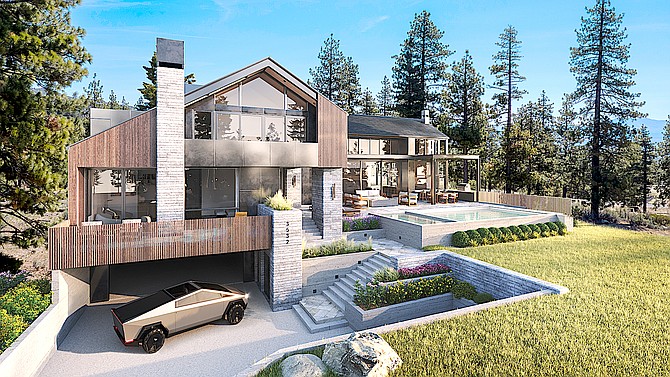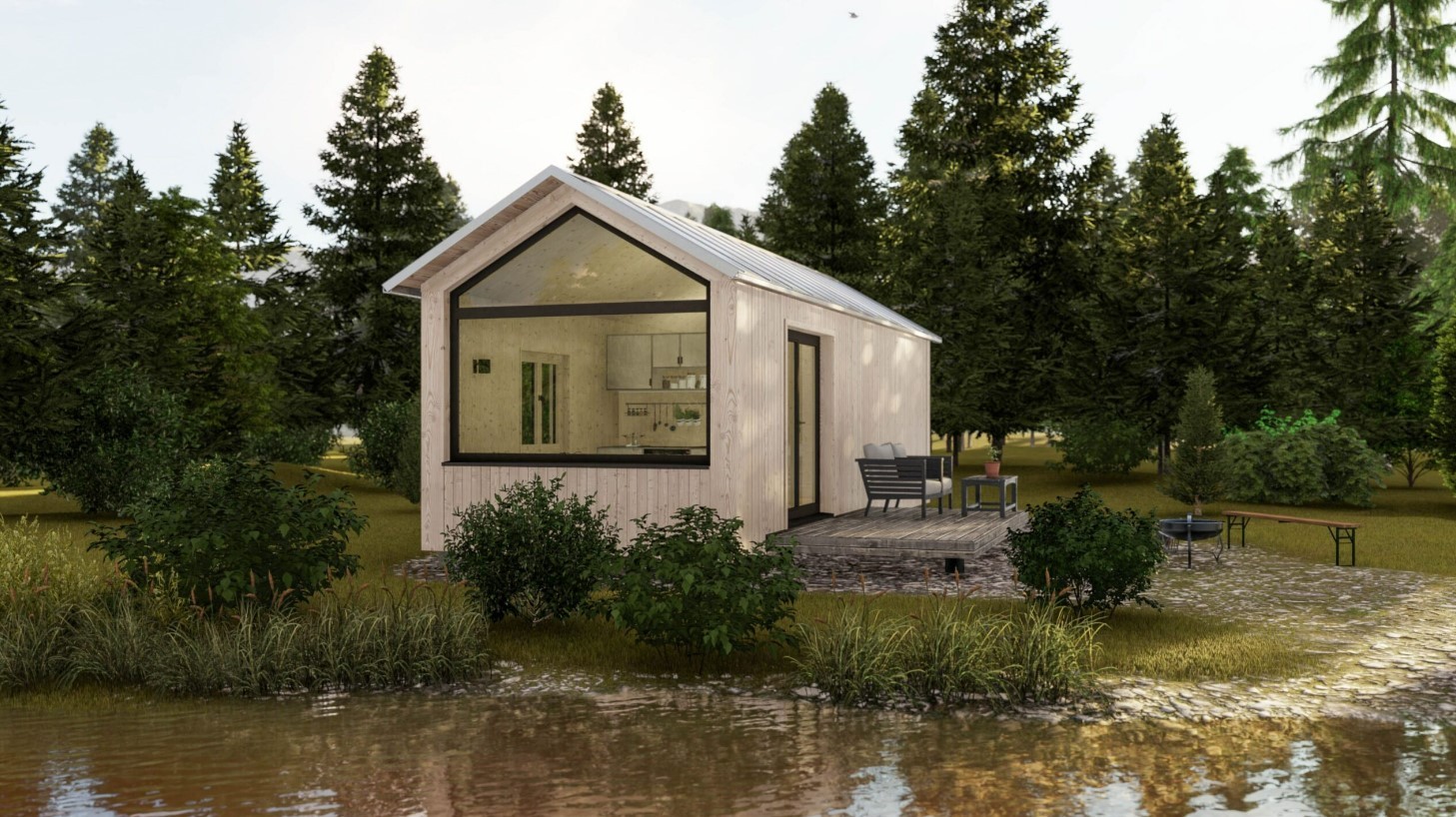Tesla Homes With Solar And Battery Backup Tours Available At Power Station Facility

Tiny home residing continues to realize recognition, drawing people looking for affordability, simplicity, and sustainability. However, there are numerous authorized considerations for tiny home living that must not be ignored. As people transition into this minimalist lifestyle, it is important to navigate the complexities of zoning legal guidelines, building codes, and land use regulations.
Zoning legal guidelines dictate how land can be utilized in a selected space, affecting where tiny homes can be located. In many municipalities, traditional zoning regulations do not account for the unique nature of tiny homes. This inconsistency can lead to challenges when making an attempt to put a tiny home on lots. Some regions might permit tiny homes as accessory dwelling models, while others may strictly prohibit them.
Building codes are another crucial aspect of tiny home living. These codes set forth requirements for the development of homes to make sure security, habitability, and structural integrity. Tiny homes, typically built on trailers or as prefabricated models, may not meet conventional building codes. It is vital to confirm whether or not native authorities acknowledge tiny homes and what specific codes apply to them.
Tesla Smart Homes With Solar Roofs Tours Available At Power Station Facility
Permitting is a necessary step before relocating a tiny home. Homeowners must obtain the appropriate permits to ensure compliance with local laws. This permit process can differ significantly by state or locality and should involve inspections and costs. Failure to secure the required permits can lead to fines or the lack to stay in the tiny home.
Land issues play a big role in tiny home legality. Many people choose to park their tiny homes on non-public property, whether or not or not it's a member of the family's land or a chosen tiny home neighborhood - Tesla Homes Powered By The Sun. Understanding property rights and lease agreements becomes crucial in these conditions. Additionally, it’s crucial to verify whether the chosen land is zoned for residential use.
Homeowners must also contemplate owners associations (HOAs) if residing in areas governed by these organizations. HOAs typically have strict rules relating to residential constructions and aesthetics. Tiny homes may not comply with these laws, which may result in conflicts. It is advisable to seek the advice of the HOA guidelines before proceeding with tiny home plans to keep away from disputes.
Tesla Tiny Homes With Renewable Energy Upcoming Plans For New Battery Systems

Financing choices pose another challenge. Many monetary institutions are hesitant to supply loans for tiny homes because of their unconventional nature. Understanding different financing avenues, such as private loans or specialised lenders who cater to tiny homes, is essential. Exploring these choices may help potential homeowners make knowledgeable choices and secure funding.
Insurance presents another legal avenue for tiny home living. Obtaining insurance for a tiny home can differ extensively from normal owners insurance coverage policies. Due to their unique structures, many companies may not provide coverage, or they could require specific endorsements. Finding an insurer knowledgeable about tiny homes might help mitigate risks associated with harm or legal responsibility.
Tesla Solar-Powered Tiny Homes Fire Incident During Flooding Event
In addition to native legal guidelines, federal rules may influence tiny home dwelling. Regulations from the Department of Housing and Urban Development (HUD) define requirements for cell and manufactured homes. If a tiny house is built on a permanent foundation, it might need to satisfy these necessities. Compliance with federal pointers can differ primarily based on a home’s classification.
One rising option for tiny home living is placement in tiny home communities. These specialized developments typically cater to the tiny home way of life, providing devoted area and shared facilities. However, this doesn't get rid of the necessity for cautious consideration to native rules. Each neighborhood could have its Tesla homes for off-grid living own set of pointers, leases, and obligations that residents should adhere to.
Building sustainable and self-sufficient residing preparations additionally requires compliance with environmental laws. Tiny home builders typically purpose to use eco-friendly materials and reduce their carbon footprint. However, depending on the situation, there could additionally be laws relating to waste disposal, water use, and energy consumption that impact how tiny homes can be designed and lived in sustainably.
Legal considerations extend past building and zoning. Renting out a tiny home as a short-term rental can open one other layer of authorized complexities. Understanding native rental laws, occupancy limits, and business licenses is crucial for anybody seeking to monetize their tiny home. Lawful practices may help keep away from penalties or potential litigation from regulatory authorities.
Tesla Homes For Sustainable Living House Fire Reported After Heavy Rain
As the tiny home motion evolves, advocacy teams work to address many of these legal issues. They aim to educate policymakers about the benefits of allowing extra versatile zoning and constructing codes to accommodate tiny homes (Tesla Homes With Zero Emissions). Engaging with local advocacy organizations might help make certain that the voice of tiny home dwellers is heard and revered in discussions concerning housing policy.
Community outreach is significant for overcoming authorized challenges in tiny home residing. Building relationships with neighbors and native authorities can foster understanding and cooperation. Providing information about tiny home benefits, similar to affordability and minimal environmental impression, can pave the way for eventual acceptance.
Ultimately, navigating the authorized panorama surrounding tiny home living requires diligence and preparation. An in-depth understanding of local laws, codes, and laws is crucial for establishing a profitable and sustainable tiny home life-style. By conducting thorough research and ensuring compliance with all legal issues, potential tiny householders can considerably improve their possibilities of a smooth transition into this new way of living.
The increasing allure of tiny homes comes with its share of complex legal challenges. As more individuals pursue this simplified way of life, it turns into crucial to remain knowledgeable and proactive relating to the legal guidelines that govern land use, development, and tenancy. Being educated on these issues permits for a extra seamless integration into the tiny home community, making certain residents can maximize the benefits of dwelling within a smaller footprint.
Tesla Smart Homes With Advanced Technology House On Fire During Hurricane Event
Tiny home residing presents an innovative solution to current housing challenges, but it doesn't come with out its obstacles. Legal concerns for tiny home living encompass numerous elements, from zoning legal guidelines to insurance coverage and neighborhood compliance. Addressing these components with a comprehensive understanding can facilitate a smoother journey into the world of tiny homes.
In summary, embracing the tiny home lifestyle necessitates a thorough examination important site of the varied legal issues that accompany it. Awareness of local laws, building codes, and group laws can considerably influence the success of a tiny home enterprise. With the best strategy, tiny home dwelling can be a fulfilling and legally compliant alternative. By educating oneself and fostering constructive group relationships, people might help shape the method forward for tiny home dwelling in a legally sound manner.
- Understanding zoning laws is crucial; different municipalities have varying regulations that may impression the place tiny homes could be placed.
- It's essential to determine if the tiny home qualifies as a copyright or an RV, as this distinction impacts constructing codes and permits.
- Research native building codes to ensure compliance; many areas have particular requirements concerning dimension, security features, and construction materials.
- Investigating land use rules may help avoid conflicts with neighbors and make sure the tiny home neighborhood adheres to native tips.
- Address potential title issues when buying land; some tiny homes are categorized as personal property, while others could additionally be actual estate, impacting financing options.
- Consider the impression of house owner association (HOA) rules that will prohibit tiny home living or impose extra necessities for homes within their jurisdiction.
- Insurance insurance policies for tiny homes differ considerably; obtaining the proper coverage can protect against liabilities and damages that conventional householders face.
- Evaluate utility hookups and regulations associated to water, sewage, and electricity to ensure that the tiny home could be properly serviced.
- Be conscious of property tax implications; the classification of the tiny home can affect tax responsibilities and native assessments.
- Stay informed about potential adjustments in legislation, as legal guidelines governing tiny homes are evolving and may vary considerably over time and location.
What zoning legal guidelines apply to tiny homes in my area?undefinedZoning laws range significantly by location. It's important to check along with your local planning division to know whether or not tiny homes are permitted and if any specific rules apply.
Tesla Homes With Battery Storage House That Comes With A Battery
Do I need a constructing allow for a tiny home?undefinedMost municipalities require a building allow for developing or placing a tiny home on a everlasting foundation. Temporary structures or RVs might have different guidelines, so verify with local authorities.
Can I park my tiny home on my property?undefinedParking laws depend on native zoning laws and land use insurance policies. Ensure your property is zoned for residential use, and examine any HOA rules if relevant.
Are tiny homes considered as everlasting housing?undefinedTiny homes could be categorised as either everlasting or short-term housing. If they are on a basis, they typically are seen as everlasting dwellings; otherwise, they could fall under RV laws.
What are the utility hookup requirements for tiny homes?undefinedUtilities similar to water, electricity, and sewage should adjust to local codes. Check with utility suppliers and local rules to ensure correct installations and connections.
Tesla Smart Homes For The Future Tours Available At Power Station Facility
How do I finance a tiny home legally?undefinedFinancing choices for tiny homes vary. Some lenders provide loans for tiny homes on foundations, while others consider them RVs. Research financing choices specific to your tiny home's classification.
Will my tiny home want to meet constructing codes?undefinedIf your tiny home is assessed as a permanent dwelling, it should meet applicable constructing codes. Always consult native building authorities to make sure compliance during building.
Tesla Homes With Energy Storage Catching Fire In Flooded Garage
Can I use my tiny home as a rental property?undefinedShort-term rental regulations would possibly apply should you intend to rent out your tiny home. Familiarize your self with native rental laws and procure needed permits to avoid fines.
What are the tax implications of proudly owning a tiny home?undefinedTax implications can differ based in your location and the classification of your tiny home. It's advisable to seek the guidance of a tax professional to grasp property taxes and potential deductions.
Are tiny homes subject to native housing regulations?undefinedYes, tiny homes could additionally be topic to housing laws, especially if they are categorised as permanent residences. Review your native housing codes to ensure compliance with security and habitability standards.